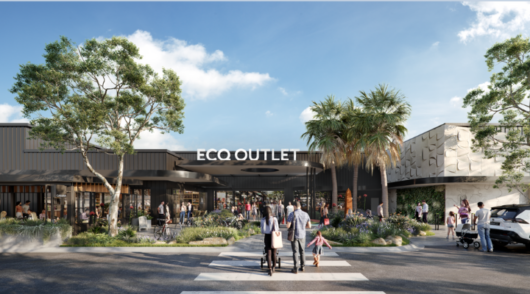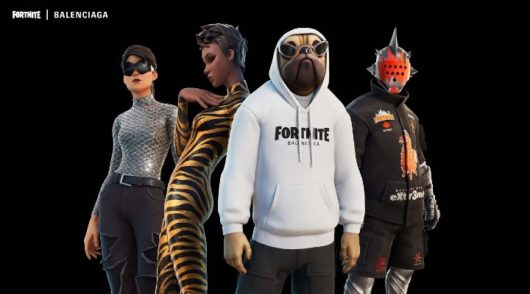 Change is the law of life. And those who look only to the past or present are certain to miss the future. – John F. Kennedy
Change is the law of life. And those who look only to the past or present are certain to miss the future. – John F. Kennedy
Dear Reader:
Over the last few years, we at Retail Doctor Group have become increasingly convinced that the next wave of global retailers would not come from traditional bricks and mortar purely and that in time to come pureplay online retailers will become omni-channel (that is the addition of physical outlets) or be pure smaller niche players.
Changes to consumer behaviour underpinned by technology, increasing disposable income in emerging and developing global markets (the growth of the middle class) commiserate power of global brands and the immersive power of data, neurosciences and technology integrating to understand consumer activity to a level of intimacy and predictive qualities all migrating simultaneously to a flashpoint that is changing what it is to be a retailer.
This is not about generational change it is about irrevocable structural change to what we know as retail.
It is not about digital per se, it’s about revolutionising the customer experience. Rather than producing technology that is aimed at customers, it’s producing technology that is designed from the customer perspective.
At the 10th year anniversary of Youtube we can reflect on an online home video channel fast emerging as a streaming channel that will no doubt be the next Fo’ with great capability to dominate the global communication streaming channels going forward.
Consider further that the next wave of global retailers will not come from the largest bricks and mortar retailers rather from the online players such as Amazon, or the Google‘s and Microsoft’s of this world.
They understand that the physical retail environment is pivotal for their growth as global brands, innovators, consumer leaders, and for their economic growth.
So what do these new players have that existing retailers need to consider?
Global brand reach:
These big online players are already global household names. Names such as Google have developed from being more than just brands, but becoming verbs used in our daily vocabulary.
When you seek a product or a service, how many times are you told from a friend to ‘Google it’? They have globally developed into a habit in consumers shopping and browsing process and this is an extremely powerful position to hold in the retail sector.
Their extensive knowledge and use of big data:
Ad re-targeting is already at the point where ads follow you around the internet and is utilised by all of key online players. In the future, re-targeting will be expanded to include shops you browse in, billboards you stop and read, and even products you look at.
A prime example of a retailer that capitalises on data is Amazon, which customises visits using shopping data (and generated $89 billion in the 13/14 year).
The online giant’s business model is based on additional recommendations, which if brought into the physical realm could provide customers with the ultimate satisfaction of needs meets convenience retail. In the short term, a personalised campaign can deliver boosts to conversion rates, but ultimately, super relevance can provide lasting customer value.
Google has the ability to track store visits based on its ‘location history’ feature on Android phones. When enabled, Google’s terms of service enable it to use aggregated, anonymised data location data for a variety of purposes.
With Google already familiar with data in this format, there is potential for its data strategy instore to go even further to provide a targeted and personalised shopping experience building customer satisfaction and ultimately loyalty.
Strong database:
Coming from the online arena where consumers enter extensive information about themselves in order to sign up to services, or purchase products, these web giants have a potential retail audience ready, waiting, and easily accessible.
Following on from this, these companies know their customers, and know how they like to receive their information, therefore can utilise this in their bricks and mortar store strategy.
Targeting millennials:
Ranging in age from 18 to 36 years old, millennials are on track to becoming the largest generation in American history. The demographics’ total spending is predicted by Accenture to reach $1.4 trillion by 2020, comprising a whopping 30 per cent of total retail sales.
Millennials are digital natives, who have grown up using mobile, internet, and social media as tools in their social interactions and economic decisions. Therefore these key online players have the potential to be extremely well received by this powerful audience.
Let’s take a look at these retail revolutionaries in closer detail:
Google:
Google recently opened the first of many Google shops to come globally , the London shop, which is located within the Currys PC World store on Tottenham Court Rd. Employees at the Google Shop offer training on how to use Android devices, Android apps, Chromebook laptops, and Chromecasts. The Google Shop will host ‘Virtual Space Camps’ for teaching children how to code.
The shop will also demonstrate potential educational tools at its ‘Open House’ events for teachers. Inside the store is a set of large connected screens known as ‘Portal’, which lets users navigate Google Earth. There is a ‘Doodle Wall’ where customers use artificial spray to create their own Google doodle and it lets you save your work as an animated GIF. There is also a ‘Chromecast Pod’ where people can watch content from Google Play and YouTube.
“The pace of innovation of the devices we all use is incredible, yet the way we buy them has remained the same for years. With the Google shop, we want to offer people a place where they can play, experiment, and learn about all of what Google has to offer; from an incredible range of devices to a totally connected, seamless online life,” Google’s U.K. marketing director, James Elias, said in an interview with The Telegraph.
Google noted that “roughly 95 per cent of retail sales take place in physical stores“.
Amazon:
Amazon may be trying to shape that evolution in a way that solves a classic process of retail. Amazon could be trying to do away with the checkout line in stores with a groundbreaking tech enhanced store format.
Recode recently reported it had unearthed a patent from Amazon that describes a type of store in which RFID technology and ubiquitous video cameras are used to enable customers to walk in, pick up an item, walk out and be billed automatically.
It is speculated that facial recognition capabilities would work in conjunction with tracking software to determine a person’s identity and apply billing to the correct individual.
News has it that Amazon has filed a patent to create a new kind of retail store which like their ‘.com’ site would be the ultimate convenience.
According to Recode, the store would allow shoppers to pick up products and then leave without needing to transact with a cashier. Such convenience suggests that the store – if it does eventuate – would require sensor technology to be able to firstly identify shoppers, and then the items they’ve chosen.
To quote from the patent: “If the user is purchasing items from a retail location… because the picked items are already known and identified on an item identifier list associated with the user, the user may simply exit the retail location with the items. The exit of the user will be detected and, as the user passes through the exit, the user, without having to stop…, will automatically be charged a fee for the items.”
The slightly scary part (or genius – depending on where you sit) is the collection and use of data. In the patent – in order to identify the user (customer) there is mention of facial recognition, as well, this collecting/using ‘user identifying information’ like ‘images of user, height of user, weight of user, username and password, user biometrics, payment instrument information (eg credit card, debit card etc), purchase limited etc’.
Check this out http://money.cnn.com/2015/02/04/technology/amazon-purdue/
(Interestingly Amazon is rumoured to be looking to purchase the bankrupt US-based Radio Shack retail shops as its own.)
Facebook:
Facebook has 13.8 million active Australian users, which equates to more than 50 per cent of the Australian population.
At Facebook’s annual F8 conference, the social networking giant revealed a new, more personal approach to online shopping called Businesses on Messenger.
Your interactions with a company following the first sale becomes a slow burn SMS chat with the business itself. Businesses on Messenger allows you to opt in when checking out on a purchase, then turn that shopping experience into a Facebook Messenger conversation with the business.
With this new feature, all information about a purchase (receipts, confirmation emails, shipping notifications, and customer service issues) comes in one Facebook message thread. If the shopper has an issue or needs to alter an order, they will be able to interact directly with the company within Facebook Messenger. The early steps to a retail space (consider that social media accounted for $30 billion of sales in 2015 twice that of the prior period).
Microsoft:
Technology giant, Microsoft, will open its first flagship store outside of North America, at Westfield Sydney later this year. Microsoft has more than 110 physical stores in the US, Canada, and Puerto Rico, 17 store in store locations in China, and online stores in 189 countries.
The new Sydney store will follow the same model as overseas, featuring Microsoft products such as Windows PCs, Surface devices, Windows Phones, Xbox One, and Office.
It will feature an Answer Desk, similar to Apple’s Genius Bar, for questions, troubleshooting, repairs, and support for all Microsoft software and hardware.
“We will regularly donate volunteer hours, host community events, offer training workshops, support science, technology, engineering, and mathematics (STEM) education, and build deeper relationships with our customers, one person at a time.
“The space will be as much a place for engaging experiences as it is a retail store. It will complement our excellent retail partner network and be a natural extension of our existing online store.”
Thanks for reading, and please excuse me while I pop down to my local Amazon shop to pick up the latest toy.
Brian Walker is founder and CEO of retail consulting company, Retail Doctor Group. RDG builds business fitness for its clients. Interested in building your business results? Brian and his team can be contacted on (02) 9460 2882 or brian@retaildoctor.com.au.





